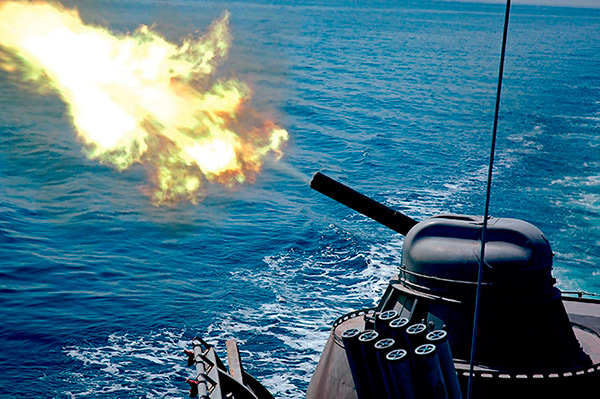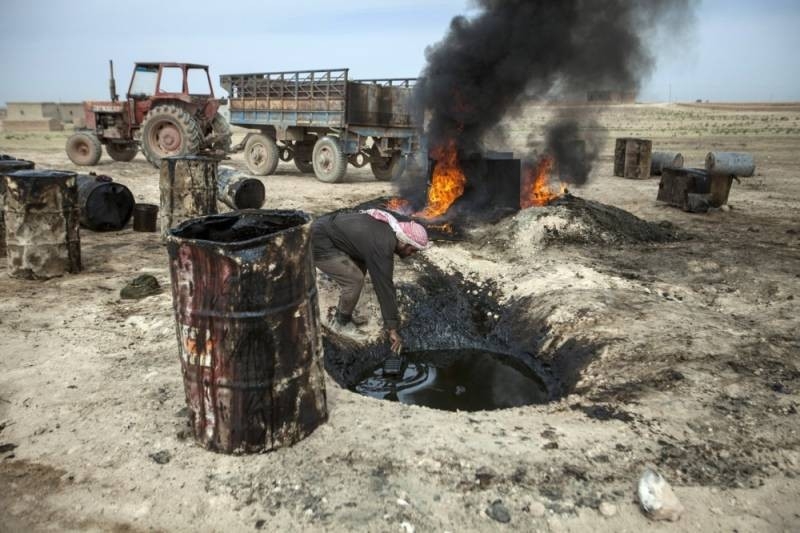
Request from Tel Aviv
The sharply increased activity of the Israeli Air Force in Lebanon indicates the preparation of a large-scale military operation by Tel Aviv, at least in the Lebanese South. Special operations against Lebanese bases “Hezbollah” and its allied groupings in this relation is only a seasoning for the main dish.
The thing is, that the south-eastern border of Lebanon is located only in 30 km from Damascus - the capital of long-suffering Syria. After that, quite real “coverage” the Syrian capital in terms of military-political geography will become threatening not only for the Syrian regime. Radical Arab-Palestinian groups will also be under attack, supporting “Hezbollah” and Hamas.
They, as is known, are, flagships of the undeclared war of Arab-Palestinian radicals against Israel, based mainly on the border “triangle” Syria-Lebanon-Israel. However, one must remember, that the Lebanese South, adjacent to Israel, Is also an important oil transit region for the entire Middle East. “Attractive”, naturally, for Israel.
In the context of the mentioned political and economic trends, which have formed at the moment in and around Lebanon, It can be assumed, that is setting the stage for an Israeli invasion of Lebanon. This is especially true given the synchronously growing military activity of Tel Aviv in the Lebanese direction.
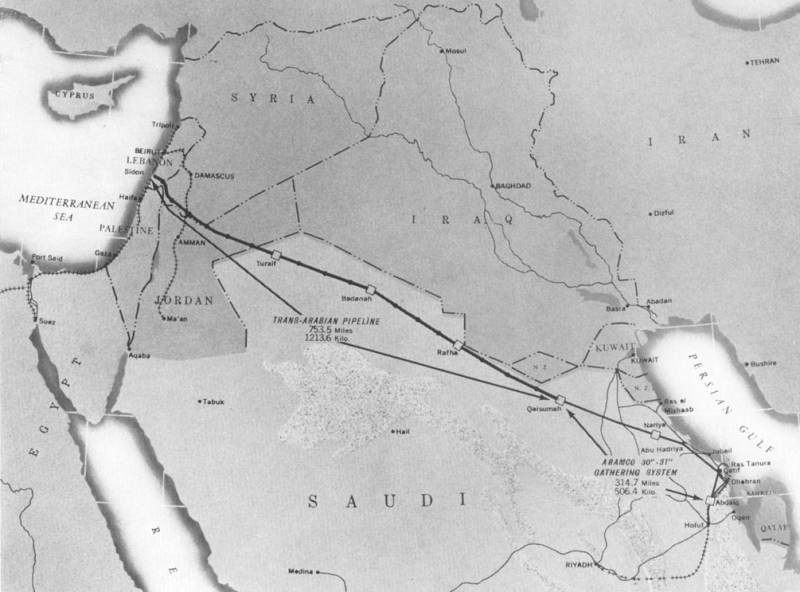
Trans-Arab oil transit - idea, born more 100 years ago.
Israel needs all this not only to increase pressure on the Syrian regime of Bashar al-Assad and the Arab-Palestinian militants. Israel needs Lebanese oil and gas, and oil to a much greater extent. After all, we must not forget about Israel's permanent desire to establish control over trans-regional oil pipelines from Saudi Arabia and Iraq to Lebanese ports., respectively, Saida and Tripoli.
Now it's transparent about the planned operation in Lebanon “hints” and the requirement, recently put forward by the Israeli government to the United States regarding the termination of financial assistance to Lebanon, remark, specifically for defense needs. From Tel Aviv and Jerusalem, Washington is mildly reminded, that in Lebanon there are still too easy conditions for anti-Israeli militants and their bases, including rocket launchers.
Reply from Washington
In the USA, they promptly heeded this request: administration E. dicker 1 November decided to suspend, as reported by Reuters and UPI, allocation to Beirut 105 million. Doll. for the security needs of the Lebanese government. Moreover, the State Department notified Congress about this decision without specifying the reasons for its adoption..
One of the Washington officials noticed this directly from the TV screen, that "this step could have been caused by the protest actions taking place in the country". It is also characteristic, that US aid to Lebanon includes the purchase by the Lebanese authorities in the United States of "night vision devices and weapons, used by the border service of Lebanon ".
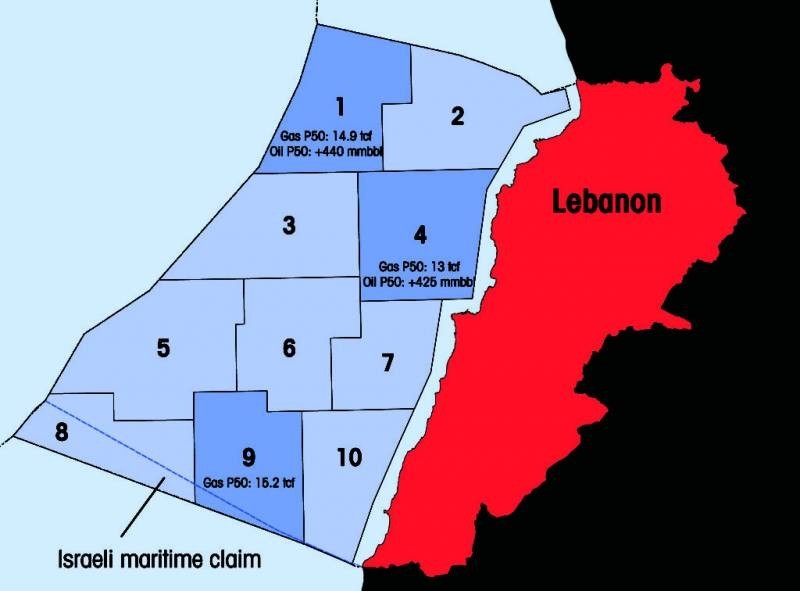
That is, American aid is suspended amid, At first, ongoing socio-political protests in the country in connection with the economic crisis in Lebanon. And secondly, escalation of military tensions between Beirut and Tel Aviv, including the increasingly frequent incursions of the Israeli Air Force into Lebanese airspace. And in addition, it is also the allegedly unintentional Israeli missile attack on the Lebanese embassy in Damascus that took place the other day..
According to the leader of the Lebanese Democratic Movement Jacques Tamer, “still unclear, where and what are the increasingly active socio-political protests in the country aimed at. Their, likely, controlled by foreign forces”. And F. Tamer (looks like, he is not alone) has “data, that there are US representatives in Lebanon, who finance the riots”.

Several children and adults were killed by mines and missiles Kurdish militants in Syria
Moreover, Mr. Tamer is absolutely sure, that today it is necessary to significantly weaken the influence of the United States and Israel, deeply embedded in Lebanese politics. And this can only be done with the help of Russia.:
“You just won't be able to drive them out - just squeeze them out. Equal power - Russia. We want, so that Russian advisers and military personnel help us in the same way, how did they do it for Syria”.
Hardly worth explaining, that it is now inexpedient for Russia to intervene in the Lebanese situation, especially in Syrian “option”. But the very fact of an appeal to Moscow is characteristic also because, what in 1943-1944 g. it was the USSR that prevented the re-occupation of the ex-French Levant, that is, the French protectorates of Syria and Lebanon by French troops. What is remembered in Damascus too, and in Beirut (cm. Moscow - Damascus: December 1943 ...).
In this connection, we recall, that there are oil refineries in the aforementioned Sayda and Tripoli, whose products, of course, also not superfluous for Israel. This country is a net importer of oil, and the 70% the annual volume of petroleum products it consumes comes through just through Saida and Tripoli.
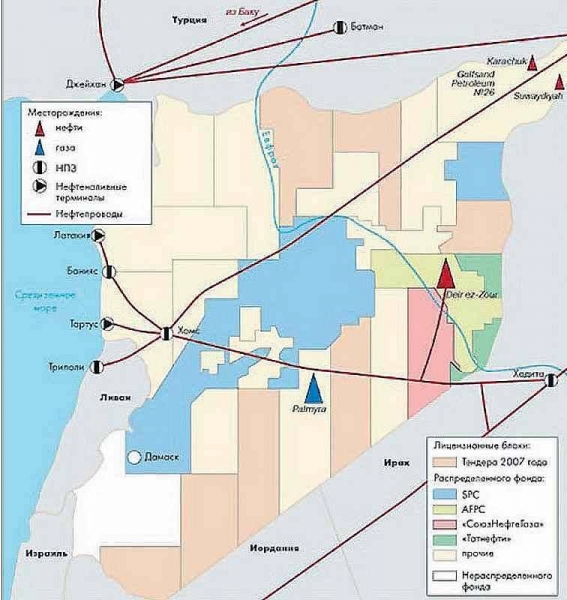
One of the main arteries, through which Israel teaches oil products - Trans-Arabian Pipeline in 1220 km, built by American companies in 1947-1950s. It connects the large Al Qaysuma oil field off the Saudi coast of the Persian Gulf (not far from Bahrain) with a port and an oil refinery in the South Lebanese Side. Consecutively passing through the north of Saudi Arabia, eastern Jordan, South Syria, further - to Saida. The Saudi Aramco, a subsidiary of the Chevron and ExxonMobil conglomerate, has been the owner of the artery and the oil refinery in Sayda since the early 1960s. (USA).
And here is the Russian trace
characteristically, that numerous Arab-Israeli wars, like the Israeli invasions of Lebanon, did not damage this artery, which is very typical. The volume of oil pumped here after the war 1967 years barely reach a third of the pre-war; respectively, the loading of the Sayda refinery has decreased by almost half. Although, According to available data, this pipeline oil and oil products from Sayda receives, including, and Israel. So why not “tighten up” to control the most important part of this artery for Tel Aviv?
The point is also in two related factors of the significance of the trans-Arabian oil pipeline for Israel.. At first, the western route of this artery ended in north-Israeli Haifa, where a large transit port remains and a powerful refinery operates. But in connection with the first Arab-Israeli war (1948-1949 gg.) by 1951, a branch from part of the route was built, that at the Syrian-Israeli border, to the South Lebanese Side.
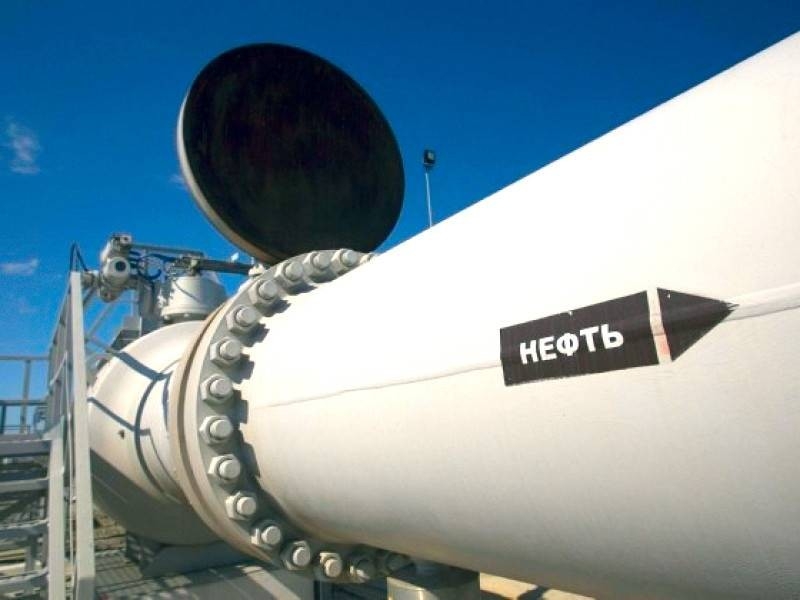
But if you write about the same artery in more detail, - not in 1958, when the United States occupied Lebanon almost all this year, neither during nor after 1967 city, when Israel occupied most of the Syrian Golan Heights, the pipeline was not interrupted. He also worked during the Israeli occupation of most of Lebanon in 1981-1982 gg., and during “peacekeeping” NATO operations in Lebanon in 1982-1983 gg. (more: “Notes from the Minefield: United States Intervention in lebanon and the Middle East, 1945—1958”, Columbia University Press, New York 1997; “TAP: Port Information and Rules”, Beirut, 1997).
Second artery, potentially attractive to Tel Aviv, Is a branch (approximately at 600 km) from the Iraqi-Syrian oil pipeline, operating since the late 1930s from the South Syrian Homs to the North Lebanese port and refinery in Tripoli, located near the northern sector of the Lebanese-Syrian border.
However, there are Israeli “perspectives” less realizable, because the 24 January 2019 g. “Rosneft” signed an agreement with the Lebanese Ministry of Energy on its operational management. The contract is designed for 20 years and applies to the port terminal for the storage of oil products in. Tripoli. The document provides, among other things, for “Rosneft” complex works to increase the throughput capacity of this oil terminal in the same period.
It is not excluded, that the presence of Russia through “Rosneft” in this region of Lebanon is holding back and, looks like, will contain Tel Aviv aspirations in Lebanon. At least, in most of Lebanese territory. And here is its southern “oil transit” part, repeat, more vulnerable to those aspirations.
Alex Chichkin







